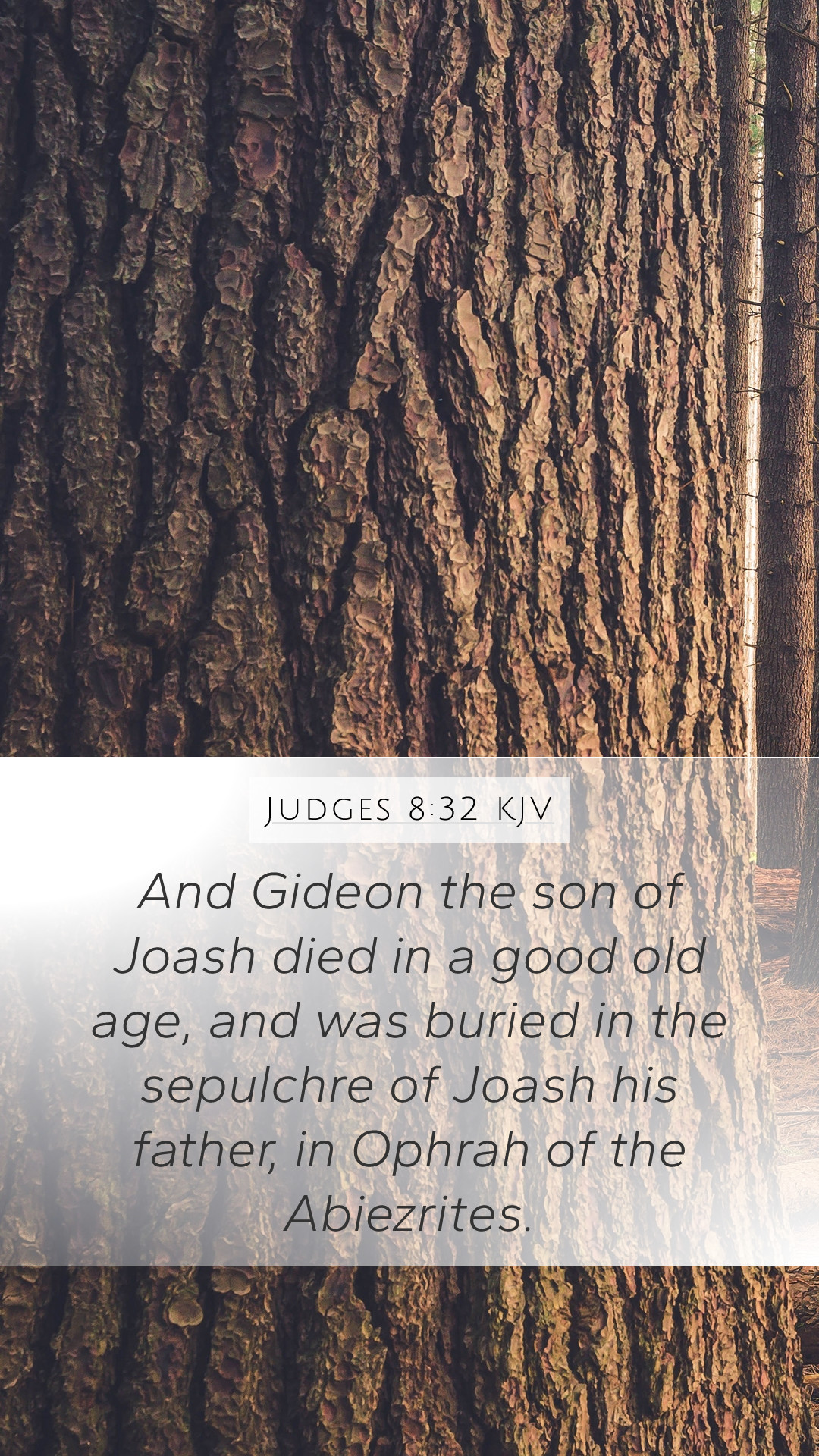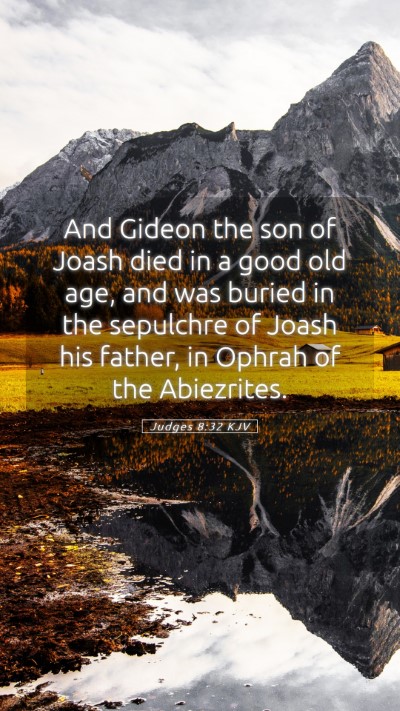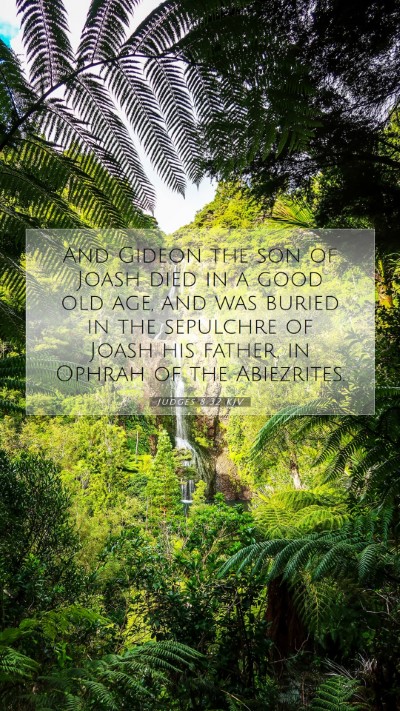Bible Verse Meanings and Interpretations: Judges 8:32
Judges 8:32 reads: "And Gideon the son of Joash died in a good old age, and was buried in the sepulchre of Joash his father, in Ophrah of the Abiezrites."
This passage marks the conclusion of Gideon's life and reflects on his legacy as a judge of Israel. Understanding this verse involves exploring the significance of Gideon’s leadership, his achievements, and the context of his death.
Key Insights from Public Domain Commentaries
Matthew Henry's Commentary
Matthew Henry emphasizes the importance of Gideon's life as a judge and leader, noting that he died "in a good old age." This phrase suggests a life well-lived, filled with accomplishments and reverence among the people. Henry further reflects on Gideon's legacy, observing that his death was a peaceful conclusion, beyond the turbulent times he faced during his leadership. Gideon's burial in the sepulchre of Joash signifies the honor and respect he earned from his family and nation.
Albert Barnes' Notes on the Bible
Albert Barnes interprets this verse as a testament to Gideon's service to God and Israel. He notes that the phrase "in a good old age" not only refers to Gideon’s longevity but also implies satisfaction and fulfillment in his life, having completed his divine mission. Barnes also highlights that Gideon was buried at Ophrah, a significant location in the narrative of his life, which serves as a reminder of his humble beginnings and the divine calling he answered.
Adam Clarke's Commentary
Adam Clarke offers a more detailed historical context regarding Gideon’s burial. He points out the cultural importance of honoring leaders by burial in family tombs. Clarke interprets the reference to Joash, Gideon’s father, underscoring the continuity of lineage and the communal memory associated with leadership. He also stresses that Gideon's death should not be overlooked as a pivotal moment heralding changes in Israel's spiritual direction that followed.
Understanding Application and Significance
The death of Gideon brings forth themes of leadership, legacy, and the faithfulness of God to His people. While examining Judges 8:32, one can employ a combination of Bible study tools and Bible study resources to draw deeper understandings of themes such as:
- Leadership and Faith: Gideon symbolizes a leader who was called by God, reflecting the idea that true leadership is rooted in obedience and trust in God.
- The Cycle of Judges: Gideon’s death is followed by a cycle of apostasy in Israel. Recognizing this cycle can be crucial for understanding the broader narrative of Judges.
- The Importance of Heritage: The reference to burial traditions points to the significance of family and heritage in the Israelite culture.
Conclusion
In reflection, Judges 8:32 encapsulates not just the end of Gideon’s life but serves as an important pivot in the narratives of the Judges of Israel. Through the various commentaries, we glean insights into Gideon's character, the significance of his death, and the implications for the future of Israel. Scholars and individuals seeking Bible verse explanations will find that Gideon’s story encourages ongoing insights into the meaning of Bible verses and the truths of Scripture.
Related Bible Cross References
- Judges 6:11-16: Gideon’s divine calling and initial reluctance.
- Judges 7: The story of Gideon's victory over the Midianites.
- Judges 8:33-35: The ensuing disobedience of Israel after Gideon’s death.
- Hebrews 11:32-34: Mention of Gideon in the Hall of Faith.
- Proverbs 4:7: The wisdom of living well and in the fear of the Lord.


